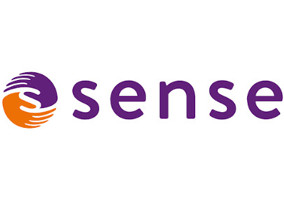Voluntary organisations found public health guidance “inconsistent and confusing” during the pandemic which negatively impacted their ability to co-ordinate volunteering, NCVO has found.
The research, Volunteering in England during Covid-19: The policy response and its impact, was published yesterday and forms part of the Mobilising Voluntary Action initiative. New research from NCVO examines volunteering policy response and its impact during the pandemic by capturing the experiences of those who worked with volunteers at the tumultuous time.
Researchers surveyed of 127 volunteer-involving organisations, held two virtual workshops, carried out five in-depth interviews, did independent policy research and ran a national event which prompted voluntary-organisations to debate the issue.
The study called for the charity sector and government should work together to shape the recovery of the sector and be prepared for future crises.
Key findings
The report found a mixed – but mostly negative - experience of governmental policy response to volunteering in England during the pandemic.
“Inconsistent and confusing public health guidance for frontline organisations put strain on those managing and coordinating volunteers,” NCVO found.
Policy response to the pandemic exposed inequalities already prevalent in volunteering before March 2020, as some areas were better prepared for the pandemic due to having more resources and greater experience than others.
The research highlighted a disconnect between national and local responses, with the NHS Volunteer Responders Scheme cited as an example of where local volunteering organisations were overlooked or underutilised.
However, the study found that the government’s call for the public to volunteer was beneficial in raising the profile of volunteering, with one respondent saying it brought volunteering into the “consciousness of the public”.
Respondents agreed that they wanted to see a clearer strategic direction and stronger leadership for volunteering both at the policy level and within the sector.
Lessons learned
The report proposes four lessons learned from England's policy response to volunteering during the pandemic:
- Long term planning and preparedness are vital - as some volunteer organisations were more prepared or better facilitated for the crises than others.
- Effective communication and collaboration is necessary - between both the government and voluntary organisations, promoting collaboration rather than competition.
- A strategic direction for volunteering in England is needed - NCVO give its Vision Volunteering initiative as an example.
- Volunteering needs a healthy environment to thrive - so that voluntary organisations will be well prepared and supported if another crisis was to occur.
'Clear lessons for the future'
NCVO said that in future there should be a more joined-up approach.
Sarah Vibert, interim CEO at NCVO, said: “My main take away from the research is that we need to move beyond a binary choice of ‘top down’ or ‘bottom up’ approach in volunteering policy in England and to instead seek to blend ‘national’ and ‘local’ – bringing out the strengths of both. The key lessons from this report outline a number of things that need to happen to support this in future.
“A lot has been written about who volunteered and how during the pandemic. However, less focus has been given to how the policy response supported the mobilisation of volunteers. This research takes a critical look at the policy response in England and presents clear lessons to support volunteering responses to future emergencies.”
'Landscape has changed forever'
RVS, which ran the NHS Volunteer Responders programme, said that despite the tensions between local and national provision the overall impact of the programme had been positive.
Catherine Johnstone, CEO at Royal Voluntary Service, said: “I welcome the paper released today by NCVO which points to a need to collaborate more across the sector, and for government policy to encourage that. I am still astounded by the Covid-19 response from the nation’s volunteers. We clearly, collectively, did something right and I fundamentally believe the volunteering landscape has changed forever as a result.
“The NHS Volunteer Responders programme which Royal Voluntary Service has delivered for NHS England with GoodSAM was designed as a crisis response and a ‘safety net’ and launched in a few short weeks. Enabled by a smart phone app, micro-volunteering offered new flexibility. People got involved who would not have been able to otherwise. At times, tensions arose around the intersection between national and local provision. But the impact of this programme has been significant. Over two million tasks have been undertaken by its volunteers supporting people who needed help.
“Volunteering’s relevance spans government departments and, of course, it needs solid investment to allow the benefits to be realised. And when it comes to ‘Levelling Up’ volunteering must be in the very foundations of the response.”
Related articles












